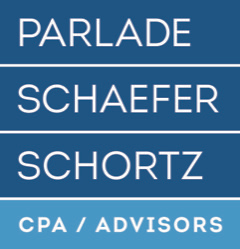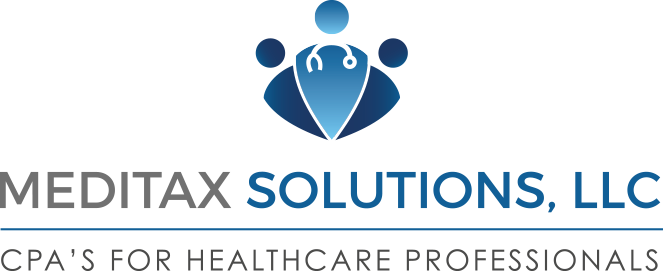CPAs 33143
 Handling payroll for a dental practice is often thought of as a simple task. The truth, however, is that there are many minor errors that can easily lead to major problems. Train your team to catch these small mistakes your practice might be making, so you can be sure to avoid them in the future.
Handling payroll for a dental practice is often thought of as a simple task. The truth, however, is that there are many minor errors that can easily lead to major problems. Train your team to catch these small mistakes your practice might be making, so you can be sure to avoid them in the future.
Estimated Recordkeeping – Don’t wait until the day before payroll is due to log shifts worked for the pay period. Days can begin to blend together and it can be challenging to recall who worked which days and times after the fact. Looking through notes and emails to figure out past days’ activities can be stressful and even inaccurate, leading to incorrect pay.
Employee Misclassifications – There are many differences, at both federal and state levels, between an employee and a contractor. Make sure you classify your team members, temporary replacement workers, and anyone else in payroll correctly to ensure an accurate, streamlined process. Depending on the infraction and your area, heavy penalties can occur for misclassified worker pay.
Not Tracking Bonuses or Gifts – Work trips or group outings are no problem, but any sort of bonus or gift that has monetary value needs to be tracked. Gift cards are a common example of this. Make sure to keep a running log of any exchanges like these for year-end purposes.
Paying Employees Wrong Rates – When employees are hired, given a raise, or have their pay otherwise adjusted, make sure this is correctly logged in the system or software you use. Using an hourly wage in a program to pay as salary can have rounding problems, so double-check your work. Manual error or forgetting to process a raise on the books right away can lead to owing back-pay or other issues in the future.
Holidays or Haphazard Payroll – Try to set a fixed schedule for your payroll. When holidays affect the normal cycle, have an established plan to deal with it appropriately. Depending on your area, missing or late payroll can create tax headaches or incur penalties, as well as causing hardship for your team.
Parlade & Schaefer, CPAS, PA
5975 Sunset Drive, Ste 802, South Miami, FL 33143
(305) 670-0400



 Though most of the attacks making headlines are those aimed at large organizations or political groups, roughly a third of all data security breaches in the last few years have occurred in the health care industry. Of these, employee error caused three times as many breaches as external attacks. In addition, more than half of the businesses who experience a security breach have fewer than 1,000 employees.
Though most of the attacks making headlines are those aimed at large organizations or political groups, roughly a third of all data security breaches in the last few years have occurred in the health care industry. Of these, employee error caused three times as many breaches as external attacks. In addition, more than half of the businesses who experience a security breach have fewer than 1,000 employees. The prospect for an audit can be daunting. The best way to combat the stress and anxiety induced with this process is to prepare yourself and your company before it happens. Below are a few tips to keep your stress levels low and your preparations high through the process.
The prospect for an audit can be daunting. The best way to combat the stress and anxiety induced with this process is to prepare yourself and your company before it happens. Below are a few tips to keep your stress levels low and your preparations high through the process. Appointments and continuing education consume most of your time. How do you manage to live a happy, well-adjusted, balanced life when you simply don’t have time? The key is in planning. Do you use a calendar to manage your time or do you simply make agreements and arrangements as they come up? Here is how you can balance your schedule by managing your calendar.
Appointments and continuing education consume most of your time. How do you manage to live a happy, well-adjusted, balanced life when you simply don’t have time? The key is in planning. Do you use a calendar to manage your time or do you simply make agreements and arrangements as they come up? Here is how you can balance your schedule by managing your calendar. No matter how effective you are at vision casting, dreams require hard work and strategic planning to become a reality. Highly successful business owners know the benefits of setting realistic and measurable goals. Rethink the way you are setting goals for your business. Your ambitious plans will be successful only if you have a road map to reach them. By mastering the art of setting incremental, measurable goals, you’ll be able to more effectively to reach them. For more tips on managing your practice,
No matter how effective you are at vision casting, dreams require hard work and strategic planning to become a reality. Highly successful business owners know the benefits of setting realistic and measurable goals. Rethink the way you are setting goals for your business. Your ambitious plans will be successful only if you have a road map to reach them. By mastering the art of setting incremental, measurable goals, you’ll be able to more effectively to reach them. For more tips on managing your practice,  Time is money. If you want your practice to be as efficient and economically prosperous as possible, you don’t want to spend valuable time dealing with the effects of clutter and chaos. Disorganization is shown to have a direct negative impact on productivity and, by extension, your earning potential as a practice.
Time is money. If you want your practice to be as efficient and economically prosperous as possible, you don’t want to spend valuable time dealing with the effects of clutter and chaos. Disorganization is shown to have a direct negative impact on productivity and, by extension, your earning potential as a practice. Did you know that more than 65% of failed businesses blame financial mismanagement as their downfall? This is why forming a good relationship with a professional financial advisor is paramount to the longevity of your business.
Did you know that more than 65% of failed businesses blame financial mismanagement as their downfall? This is why forming a good relationship with a professional financial advisor is paramount to the longevity of your business. Dental CPA Miami FL
Dental CPA Miami FL Have you wondered whether you actually need to have a professional accountant? Here are 5 signs that confirm you do:
Have you wondered whether you actually need to have a professional accountant? Here are 5 signs that confirm you do: Though most of the attacks making headlines are those aimed at large organizations or political groups, roughly a third of all data security breaches in the last few years have occurred in the health care industry. Of these, employee error caused three times as many breaches as external attacks. In addition, more than half of the businesses who experience a security breach have fewer than 1,000 employees.
Though most of the attacks making headlines are those aimed at large organizations or political groups, roughly a third of all data security breaches in the last few years have occurred in the health care industry. Of these, employee error caused three times as many breaches as external attacks. In addition, more than half of the businesses who experience a security breach have fewer than 1,000 employees.